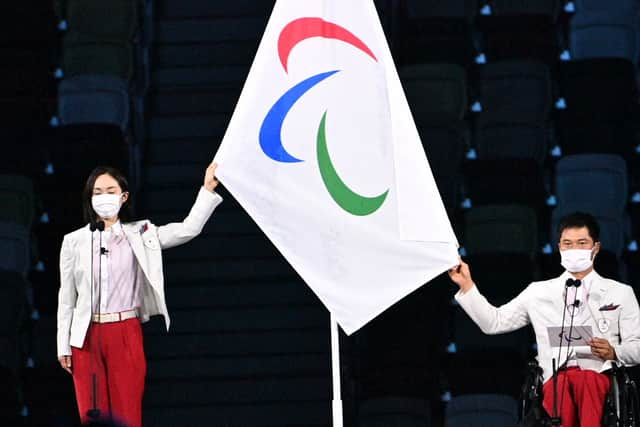Why is it called the Paralympics? Meaning of Paralympic term, Greek origins - and what the logo means
and live on Freeview channel 276
Tokyo is making history as the first city to host the summer Paralympic Games for a second time, having also done so in 1964.
With 4,350 athletes competing across 22 different sports - including two new ones - in 539 events, Tokyo 2020 promises to be the biggest Paralympics yet.
Advertisement
Hide AdAdvertisement
Hide AdA total of 162 delegations, three more than Rio 2016, are taking part, and five countries – Bhutan, Grenada, Maldives, Paraguay and St Vincent and the Grenadines – are making their debuts as part of these Games.
But where did the word “Paralympic” come from, and what exactly does it mean?
Here is everything you need to know.
Why is it called the Paralympics?
Originally, the word Paralympic was intended as a portmanteau - that is, a blend of two separate words to form a new word - combining "paraplegic" and "Olympic".
This is because of the Games’ origins as a sports competition for British World War II veteran patients with spinal cord injuries.
Advertisement
Hide AdAdvertisement
Hide AdThe first athletic event for disabled athletes that coincided with the Olympic Games took place on the day of the opening of the 1948 Summer Olympics in London.
Organised by Dr. Ludwig Guttmann, a German-British neurologist at Stoke Mandeville Hospital, these events were officially known as the International Wheelchair Games.
It wasn’t until 12 years later that the first “official” Paralympic Games were held in Rome in 1960
By this time, the inclusion of other disability groups meant that the Paralympic portmanteau was no longer considered very accurate,
Advertisement
Hide AdAdvertisement
Hide AdSo the present formal explanation for the name is that it derives from the Greek “pará”, meaning "beside" or "alongside", and refers to a competition held in parallel with the Olympic Games.
Though the first official Paralympic Games are widely recognised as having taken place in 1960, the Summer Games of 1988 held in Seoul was the first time the “Paralympic” term came into official use.
What does the logo mean?


The symbol for the Paralympics contains three colours: red, blue, and green. These are the colours which are most widely represented in the flags of the nations of the world.
The colours are each in the shape of an “Agito”, an asymmetrical crescent specially designed for the Paralympic movement.
Advertisement
Hide AdAdvertisement
Hide AdThe Agito takes its name from Latin, and means "I move / I shake / I stir".)
The three Agitos circle a central point, which is a symbol for the athletes congregating from all points of the globe.
A message from the editor:
Thank you for reading. NationalWorld is a new national news brand, produced by a team of journalists, editors, video producers and designers who live and work across the UK. Find out more about who’s who in the team, and our editorial values. We want to start a community among our readers, so please follow us on Facebook, Twitter and Instagram, and keep the conversation going. You can also sign up to our newsletters and get a curated selection of our best reads to your inbox every day.
Comment Guidelines
National World encourages reader discussion on our stories. User feedback, insights and back-and-forth exchanges add a rich layer of context to reporting. Please review our Community Guidelines before commenting.
